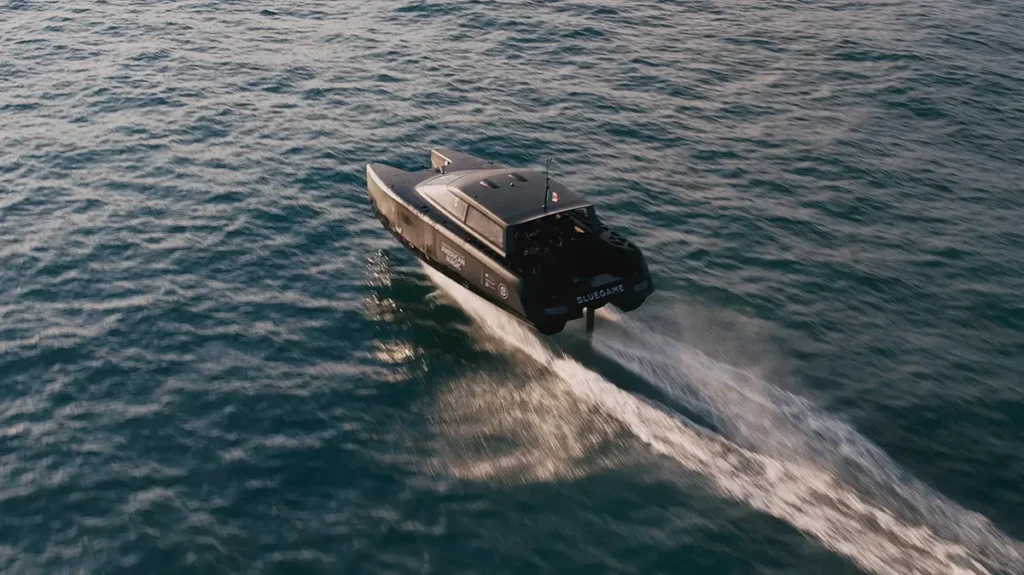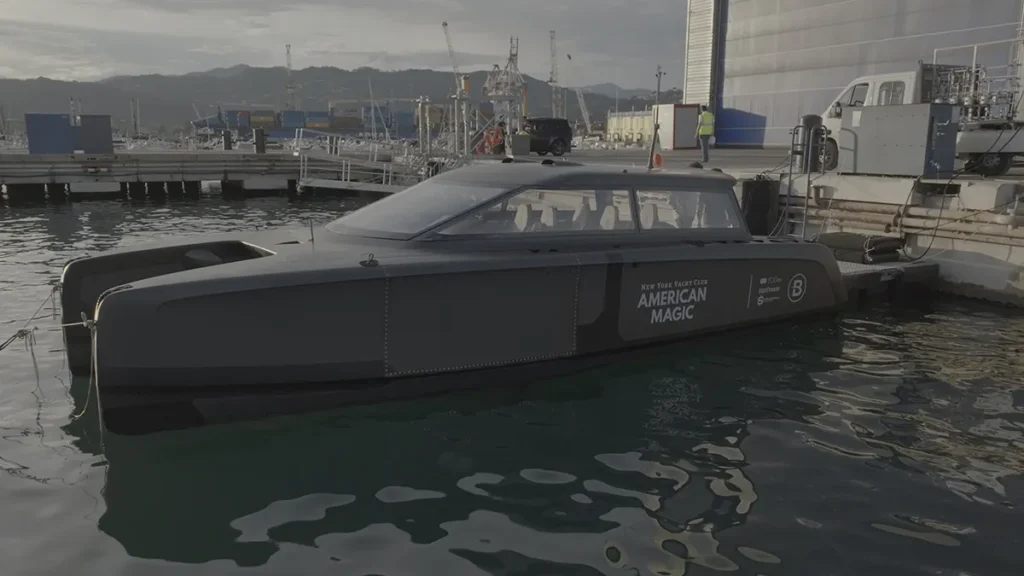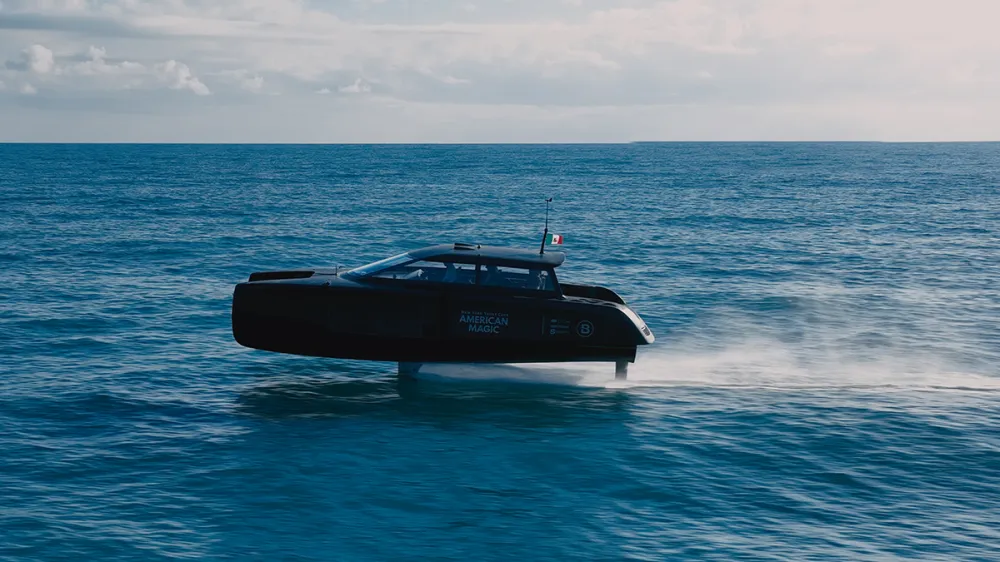As the importance of sustainability grows, the yachting sector is experiencing a critical juncture. Clean energy solutions are changing the way we approach marine travel in response to increasing environmental concerns. Designed for the America’s Cup, the Bluegame Hydrogen-Powered Chase Boat is a revolutionary step towards more environmentally friendly yachting options.
The Development of Hydrogen Propulsion for Ships
Hydrogen power has been a potential answer for many businesses’ emissions problems for quite some time. A major development in the maritime industry is the possibility of hydrogen fuel cells supplanting conventional diesel engines. Hydrogen fuel cells produce energy by reacting hydrogen and oxygen, unlike traditional propulsion systems, which only release water vapour. In addition to reducing dangerous pollutants, this technique increases fuel efficiency and the vehicle’s operational range.

The Elusive World of Hydrogen Fuel Cells
Hydrogen fuel cells work by utilizing electrochemical reactions to transform chemical energy into electrical energy. Each cell in the fuel cell stack has a membrane electrode assembly (MEA) that helps the hydrogen-oxygen reaction happen. The anode is a device that separates protons and electrons from hydrogen molecules as they move past it. In an electrolyte, protons move over the membrane while electrons flow via an outside circuit, producing an electric current. An eco-friendly and effective substitute for fossil fuels, this electricity drives the boat’s propulsion system.
The Innovative and Performance-Boosting Bluegame Design
The America’s Cup chase boat design by industry-leading yacht builder Bluegame incorporates hydrogen technology, an audacious move. Not only does this ship have state-of-the-art technology, but it also proves that sustainability is important without sacrificing performance. The design of the chase boat makes use of lightweight materials and sophisticated hydrodynamics to provide the best possible speed, maneuverability, and energy efficiency.
Compact Design with State-of-the-Art Hydrodynamics
The Bluegame Hydrogen-Powered Chase Boat’s overall weight is drastically reduced because to the use of lightweight composite materials in its construction. The boat’s range and fuel efficiency are both improved thanks to the lighter weight, which makes the hydrogen fuel cells work more efficiently. Also, the boat can go fast through the water since its hull is designed to have little resistance. To keep up with the performance standards needed in high-stakes events like the America’s Cup, these design components are important.

Sustainability and Its Effect on the Environment
There will be significant positive effects on the environment from marine boats driven by hydrogen. Particulate matter, carbon dioxide, and nitrogen oxides are all released into the air by conventional diesel engines, which exacerbate air pollution and global warming. On the other hand, hydrogen fuel cells are perfect for lessening the environmental impact of the marine sector because they do not release any hazardous emissions.
The Yachting Industry’s Contribution to Carbon Footprint Reduction
Achieving carbon neutrality in maritime activities is facilitated by the development of hydrogen technology in yachting. The yachting industry may significantly cut its emissions of greenhouse gases if it switches to hydrogen fuel cells from diesel engines. Another way to make this technology more eco-friendly is to employ renewable energy sources to produce hydrogen, including solar or wind power for electrolysis. In addition to putting the yachting industry in the forefront of environmental protection, this strategy is in line with international initiatives to fight climate change.
How Hydrogen-Powered Yachts Will Change the World
It is with the creation of the Bluegame Hydrogen-Powered Chase Boat that a new age in yachting has begun. We should anticipate that hydrogen power will gain traction in the marine sector as technology progresses. Cleaner energy is the future, and with it comes exciting new possibilities for advancements in boat engineering and design, as well as environmental benefits.

Possibility of More Extensive Use in the Yachting Sector
If Bluegame’s hydrogen-powered pursuit boat is a success, it might lead to more yachts using hydrogen engines. The number of yachts and support vessels powered by hydrogen may rise as more companies perceive the value of hydrogen fuel cells. Regulatory mandates, increasing consumer demand for eco-friendly products, and the continuous development of hydrogen fuel cell technology will all play a role in propelling this shift.
Conclusion: At the Front of the Movement for Eco-Friendly Yachting
More than technical advancement, the Bluegame Hydrogen-Powered Chase Boat signifies a sea change in our perspective on yachting. Hydrogen power offers a great opportunity for the yachting sector to lessen its environmental footprint without sacrificing the performance and luxury that fans desire. In the future, a more sustainable world will be shaped in large part by the use of hydrogen technology in marine boats.










